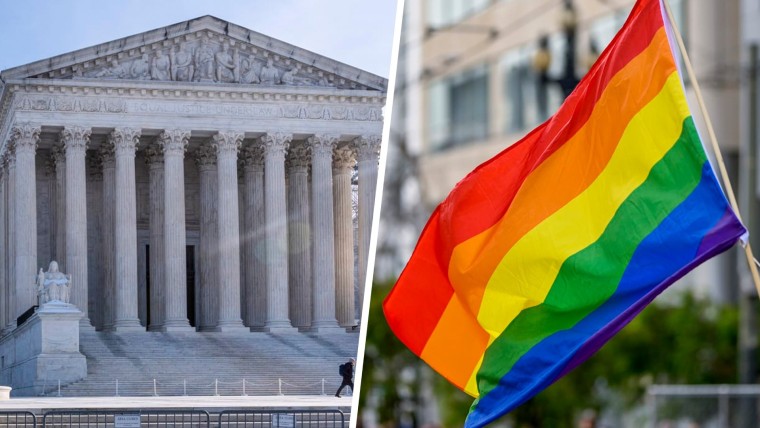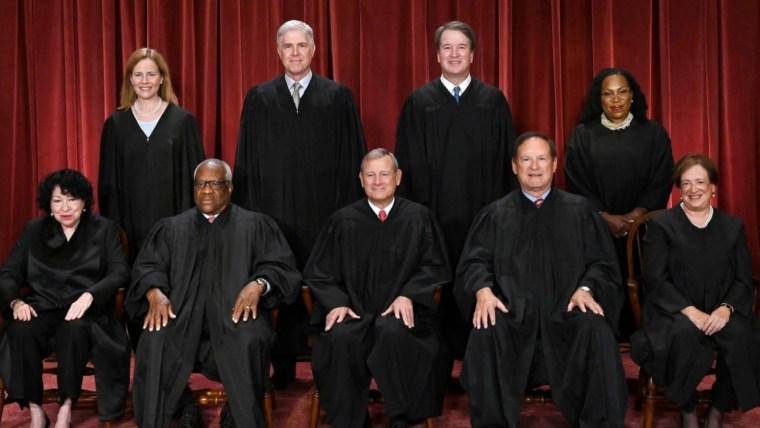The so-called birthright citizenship case decided by the U.S. Supreme Court on Friday proved an irresistible shiny object to the court’s hubris, gleaming with the chance to address fringe conservative ideology and enhance the power and ego of the high court, all while it used its favorite new love: the emergency shadow docket. To put it plainly, the conservative wing of the court shouldn’t have even entertained the Trump administration’s arguments about birthright citizenship — and those justices have made it clear that they can and should diminish the role of lower courts through their prodigious use of the emergency shadow docket.
It’s difficult to see how fans of ‘originalism’ could read this to mean that children born in the U.S. aren’t citizens — but that is exactly what Trump’s Justice Department argued.
Consolidated from three cases in which lower courts stayed implementation of President Donald Trump’s executive order revoking the U.S. Constitution’s guarantee of birthright citizenship, the case involved only the question of whether lower court judges can issue nationwide injunctions. But at oral argument, the justices couldn’t help themselves, wading repeatedly into the question of birthright citizenship itself, thus lending legitimacy to a once-fringe conservative theory.
The Constitution couldn’t be clearer. Section 1 of the 14th Amendment states: “All persons born or naturalized in the United States, and subject to the jurisdiction thereof, are citizens of the United States and of the State wherein they reside.”
It’s difficult to see how fans of “originalism” could read this to mean that children born in the United States somehow aren’t citizens — but that is exactly what Trump’s Justice Department argued.
Keep in mind that the 14th Amendment itself arose after a civil war was fought over the question of whether slaves possess the same rights as other people in the country — and was specifically meant to counter the backlash against Black people and recalcitrance in the Southern states to treating freed slaves as equals.
In particular, the amendment struck back at the Supreme Court’s racist decision in the 1857 Dred Scott case, in which it ruled that enslaved people weren’t citizens of the United States. The Trump administration’s argument rested upon an outlandish conservative theory that asserts the 14th Amendment’s grant of citizenship to anyone born in the United States is actually limited only to the children of freed slaves. It is a theory promoted by John Eastman, a law professor who was elevated from obscurity for his role in developing the bogus legal arguments used by Trump in his attempt to overturn the results of the 2020 election. (Eastman is likely to lose his law license for making these arguments about the election.)

Despite the fact that the question before them was limited to whether federal trial court judges can issue injunctions that apply nationwide, the justices seemed incapable of distinguishing between that question and the underlying issue of birthright citizenship. In fact, that difficulty demonstrates the fallacy behind trying to limit or do away with nationwide injunctions because the underlying issue is always inextricably interwoven with whether an injunction is needed.
Today’s 6-3 decision fails to resolve this conundrum. Rather, it only further highlights the problems raised at oral argument — with the conservative majority focusing only on the authority of lower courts to issue nationwide injunctions, while the liberal minority dissents accuse the majority of turning a blind-eye to the potentially blatant illegality of Trump’s executive order.
In a coldly beautiful piece of legal writing, Justice Amy Coney Barrett manages to capture the votes of all of the conservative justices with a deep dive into the history of the 1789 Judiciary Act. She concludes that in 1789, there was no contemplation of nationwide injunctions and, thus, using them likely exceeds the authority of the federal courts.
Justice Sonia Sotomayor’s dissent — joined by Justice Elana Kagan, accuses the majority of enabling legal “gamesmanship” by the Trump administration that makes it so that “No right is safe in the new legal regime the Court creates.” In a separate, even more blistering dissent, Justice Ketanji Brown Jackson argues that the majority gives the executive branch “permission to engage in unlawful behavior.”
The dissents have the better argument, because they accurately call out the problem of the court’s reluctance to rein in acts of the executive.
The real reason for the court’s decision lies in its hubristic thinking that the justices really are elevated above the rest of the judiciary — not by the org chart of the Constitution, but by their legal acumen.
In their eagerness to convert themselves from being a court of last resort to a court of only resort, the justices do the country a disservice.
This was aptly revealed in Chief Justice John Roberts’ question at oral argument about whether nationwide injunctions were needed, given that the Supreme Court can act quickly in emergency cases. Roberts sounded self-congratulatory about the court’s alacrity as he mused that it had done the TikTok case in only a month. The chief justice’s question suggests his conceit that the Supreme Court can handle all the important questions itself via emergency docketing, so there is no need for nationwide injunctions.
Justice Brett Kavanaugh’s concurring opinion makes this plain, as he emphasizes the point that it is the high court’s job to weigh in on preliminary injunctions if they are important enough. Naming these situations as “the interim before the interim,” Kavanaugh says that in really important issues, it’s the traditional role of the Supreme Court to step in, thus reinforcing the diminishment of the role of lower courts. Implicit in Kavanaugh’s reasoning is the same arrogance that underlies Chief Justice Roberts’ view, namely that the justices are not only better at deciding important cases, but also should be the only ones deciding which are the important ones.
This view is startlingly myopic.
It’s myopic because issues like birthright citizenship are national by definition — they’re fundamental interpretations of the Constitution affecting all Americans. When they arise in a specific case, it’s critical that a lower court be able to freeze the status quo until there is enough time to fully litigate the issues. That’s exactly what an injunction does — it freezes the status quo to make sure irreparable harm doesn’t occur before the legality of the controversy can be properly litigated.
It’s also myopic because Roberts’ idea of speed is on Supreme Court time. Sure, taking a month to decide to hear a case and — in the case of birthright citizenship — another month or more to decide might be fast by high court standards, but in the real world it’s forever. Too much harm across the country can occur while Roberts and his fellow justices use their version of a “fast track.”

And finally, it’s also myopic because the overuse of the emergency docket shortcuts the full development of a legal case before it reaches the highest court in the land. The factual development accomplished through litigation and the appellate analysis of the trial court proceedings may all be jumped over. Often, the high court doesn’t even have oral argument on a case (although it did have it in this case), and typically the decisions are unsigned and can be quite brief in explaining the legal reasoning of a case.
Haste makes waste, and the Roberts Court’s inability to wait for cases to fully ripen deprives it not only of a full record, but also of making informed decisions about which cases to take. In their eagerness to convert themselves from being a court of last resort to a court of only resort, the justices do the country a disservice.
